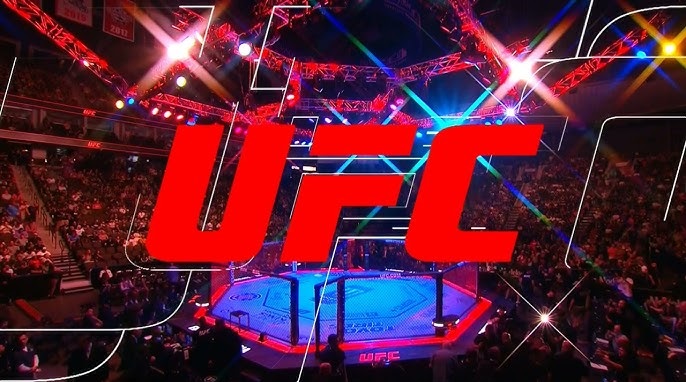In the high-octane world of mixed martial arts (MMA), the Ultimate Fighting Championship (UFC) stands as a colossus, its name synonymous with exhilarating fights, legendary athletes, and unforgettable moments. Yet, this global phenomenon, which now draws millions of fans worldwide, began in humbler venues, far removed from the iconic octagons that have become its hallmark.
The journey of the UFC, from its inception as an underground promotion to its status as the pinnacle of MMA, is a tale of vision, controversy, transformation, and triumph. It’s a narrative that mirrors the evolution of the sport itself, from the fringes to the mainstream, capturing the imagination of audiences across the globe. Let’s delve into the remarkable evolution of the UFC and discover how it fought its way to the top.
Origins and Early Controversy
The UFC made its debut in 1993, conceived as a tournament to determine the most effective martial art in actual combat situations. With minimal rules and a no-holds-barred format, it was unlike anything the sports world had seen. Early events were marked by a raw, unpolished feel, with fighters from diverse backgrounds—boxers, sumo wrestlers, jiu-jitsu practitioners—clashing in an open-weight format. This novel concept captured the attention of martial arts enthusiasts but also ignited controversy. Critics lambasted the organization for its perceived brutality, labeling it as “human cockfighting” and calling for its regulation or outright ban.
Despite the backlash, these formative years laid the groundwork for what the UFC would become. The controversy, while challenging, sparked a national conversation about combat sports, safety, and sportsmanship, forcing the UFC to evolve. This period of contention set the stage for the organization’s transformation, as it began to implement weight classes, standardized rules, and protective measures for fighters, gradually shaping the modern sport of MMA.
The Turnaround and Rise in Popularity
The turning point for the UFC came in the early 2000s under the leadership of Dana White and the financial backing of casino moguls Lorenzo and Frank Fertitta. Recognizing the potential of the UFC to become a mainstream sports entity, they set out to rehabilitate its image. The UFC began to shed its earlier notoriety through strategic marketing, securing state athletic commission sanctioning, and implementing comprehensive rule changes.
The introduction of The Ultimate Fighter reality TV series in 2005 marked a significant breakthrough. By showcasing the rigorous training, dedication, and personal stories of fighters, the show helped humanize the athletes and attract a wider audience. The dramatic increase in viewership and interest in the UFC events that followed underscored the promotion’s rising popularity, transitioning from a niche spectacle to a respected sporting competition.
Expansion and Mergers
As the UFC solidified its foothold in the sports world, it began to look beyond its borders in terms of geography and market share. The 2000s saw the UFC embark on a strategic expansion, hosting events outside the United States and reaching international audiences. Countries like Brazil, Canada, Japan, and the United Kingdom hosted UFC events, tapping into rich martial arts traditions and fervent fanbases.
The acquisition and merger with rival promotions such as Pride FC, WEC, and Strikeforce were pivotal moves. These mergers not only eliminated competition but also brought a wealth of talent under the UFC banner, enriching the fighter roster and facilitating dream matchups. This period of strategic expansion and consolidation was instrumental in shaping the UFC into a global MMA powerhouse, setting the stage for unprecedented growth and the emergence of a new era of superstars.
The Rise of Superstars
The UFC’s ascent to global prominence was significantly propelled by the emergence of charismatic superstars who captivated fans beyond the traditional martial arts community. Fighters like Conor McGregor, Ronda Rousey, and Jon Jones became household names, transcending the sport with their remarkable skills, compelling personalities, and marketability. McGregor’s foray into boxing against Floyd Mayweather Jr. and Rousey’s transition to WWE and Hollywood exemplified the crossover appeal of UFC athletes, drawing unprecedented attention to the organization.
These superstars’ influence extended the UFC’s reach, attracting new fans and sponsors and contributing to the sport’s growing acceptance and popularity. Their stories of triumph, resilience, and determination resonated with a broad audience, highlighting the athleticism and professionalism at the sport’s core. As a result, UFC events became must-see spectacles, generating significant revenue and elevating the entire sport of MMA.
Growing into a Global Phenomenon
The factors contributing to the UFC’s rise as a global phenomenon are manifold. Among these, the expanded legalization of UFC betting played a pivotal role. Fans not only had the opportunity to engage with the sport as spectators but could now actively participate by placing wagers on fighter performance and fight outcomes. This development, coupled with the organization’s strategic partnerships and digital initiatives, helped to further embed the UFC into the fabric of global sports culture.
Additionally, the UFC’s venture into video games and merchandise expanded its reach, allowing fans to connect with their favorite fighters and the sport in new and interactive ways. These initiatives, alongside a robust social media presence, ensured that the UFC remained at the forefront of digital engagement, captivating a young, tech-savvy demographic worldwide.
Final Bell: The Unstoppable Might of the UFC
From its controversial beginnings to its current status as a linchpin of global sports, the UFC’s evolution is a remarkable tale of transformation and triumph. The organization has navigated challenges and seized opportunities, propelling mixed martial arts into the mainstream and securing its place in the annals of sports history. As the UFC continues to innovate and expand, its impact on the world of sports and entertainment is undeniable. The journey from dribbles in makeshift rings to battles in iconic octagons encapsulates the spirit of the UFC: a relentless pursuit of greatness, a celebration of the human spirit, and an unwavering commitment to delivering the exhilarating spectacle of combat sports to fans around the globe.


